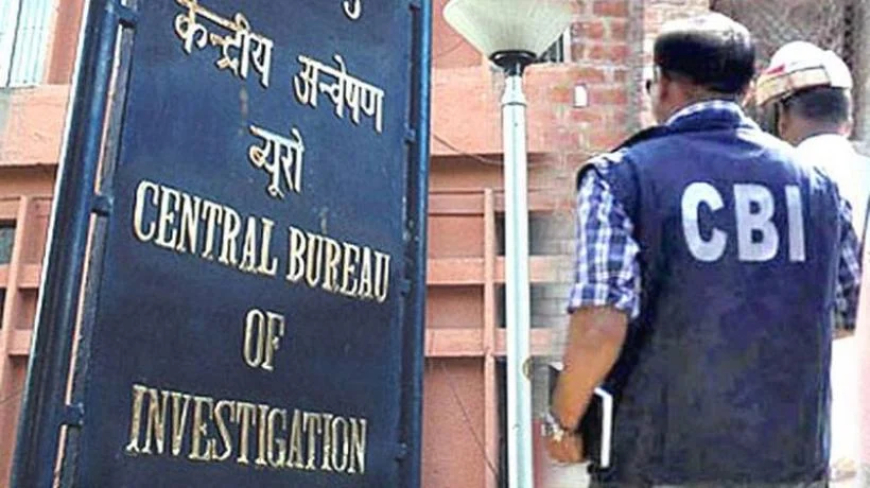CBI Takes Over Sandeshkhali Murder Probe: Spotlight on TMC’s Sheikh Shahjahan After High Court Orde
The CBI has taken over the Sandeshkhali triple murder case in West Bengal following a Calcutta High Court order. Suspended TMC leader Sheikh Shahjahan is under scrutiny as the investigation resumes.

Kolkata, July 7, 2025 — The long-awaited investigation into the 2019 triple murder of BJP workers in Sandeshkhali, North 24 Parganas district of West Bengal, has been officially transferred to the Central Bureau of Investigation (CBI). The move follows a directive from the Calcutta High Court, which expressed dissatisfaction over the West Bengal police’s handling of the case and pointed to possible political interference.
At the center of this intensifying case is Sheikh Shahjahan, a now-suspended leader of the Trinamool Congress (TMC), whose alleged role in the killings has reignited political tensions and public outrage in the state.
What Happened in Sandeshkhali? A Political Flashpoint Since 2019
In May 2019, shortly after the conclusion of the Lok Sabha elections, three BJP workers — Pradip Mondal, Sukanta Mondal, and Tapan Mondal — were found dead in Sandeshkhali. The incident shocked the region and escalated the already tense political rivalry between the BJP and TMC in the area.
Family members and BJP leaders had immediately accused Sheikh Shahjahan, a powerful local figure aligned with the TMC, of orchestrating the murders, allegedly as part of a broader campaign of political intimidation.
Despite initial arrests and sporadic chargesheets filed by state police, critics and legal experts said the investigation remained superficial, prompting multiple petitions in the Calcutta High Court over the past four years.
Calcutta High Court’s Decision: A Turning Point
On July 5, 2025, a division bench of the Calcutta High Court, led by Justice Amrita Sinha and Justice Subrata Acharya, passed a strongly worded order, transferring the probe to the CBI. The bench cited:
-
“Apparent lapses” in the original police investigation
-
“Lack of transparency and delay” in filing complete forensic and witness reports
-
“Reasonable apprehension” of bias due to political proximity between the accused and local authorities
The court emphasized that justice must not only be done but must also be seen to be done, and noted that free and fair elections cannot exist without accountability for political violence.
Full court order accessible via Calcutta High Court official portal
CBI’s Immediate Steps: Rebuilding the Case
Following the court order, a CBI special investigation team (SIT) has been formed and has already visited Sandeshkhali to meet with the victims’ families, inspect original case files, and collect forensic evidence that was allegedly overlooked or mishandled.
CBI officers are expected to:
-
Re-interview key witnesses, many of whom had recanted earlier testimonies, reportedly due to threats
-
Conduct fresh forensic and ballistic tests on recovered weapons
-
Investigate the role of local police officers and political actors in possibly suppressing evidence
-
Re-evaluate Sheikh Shahjahan’s involvement, along with his associates’ movements during the incident
This marks the third high-profile political violence case in West Bengal this year handed over to the CBI, raising questions about the state administration’s credibility in handling politically sensitive investigations.
Sheikh Shahjahan: Once a TMC Strongman, Now Under Fire
Sheikh Shahjahan was once considered one of TMC’s most influential grassroots leaders in North 24 Parganas. He was suspended by the party in early 2024 amid a wave of allegations ranging from land grabbing to assault on women protestors, which had triggered massive protests in Sandeshkhali.
While TMC leaders have distanced themselves from Shahjahan, the BJP continues to accuse the ruling party of shielding him for years. BJP spokesperson Samik Bhattacharya called the High Court’s ruling a “slap in the face of Mamata Banerjee’s governance” and demanded a criminal trial against senior officers involved in the earlier investigation.
TMC has maintained a cautious tone, with general secretary Kunal Ghosh stating:
“The party has no relation with Sheikh Shahjahan anymore. The law will take its own course. We respect the judiciary.”
Political Implications: A Battle for Narrative
The case has become a symbol of the larger political divide in West Bengal. While the BJP frames it as a law-and-order failure and a human rights issue, the TMC argues that the timing of the renewed investigation is politically motivated ahead of upcoming civic body elections.
Moreover, the case has drawn attention from civil society organizations, many of whom are calling for wider reforms in how political violence cases are handled in India.
Read more on the systemic issues in political crime investigations via this detailed analysis by PRS Legislative Research.
Families of Victims: Awaiting Justice After Six Years
For the families of Pradip, Sukanta, and Tapan Mondal, the court’s directive offers a glimmer of hope. Speaking to local media, Pradip Mondal’s widow, Sumitra, said:
“We lost everything in 2019. For years, no one listened. We just want justice. Let the truth come out, no matter how powerful the accused.”
Social activists and opposition parties have promised to ensure that the CBI probe remains under public and judicial oversight, and have demanded a time-bound trial once the investigation concludes.
Conclusion: A Litmus Test for Federal Investigations and Political Neutrality
The CBI’s assumption of control in the Sandeshkhali case is not just about one act of violence — it represents a larger challenge for the rule of law in politically volatile regions. Whether justice is delivered swiftly and transparently will determine not just the credibility of the CBI but also the faith of the public in India's democratic institutions.
In an era where political affiliations often blur the lines between justice and power, this case is poised to be a landmark for how India addresses political violence and accountability.











